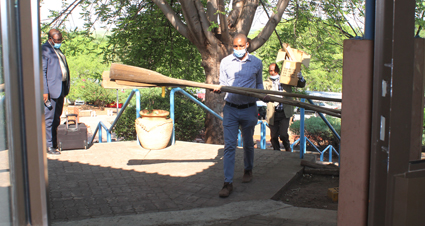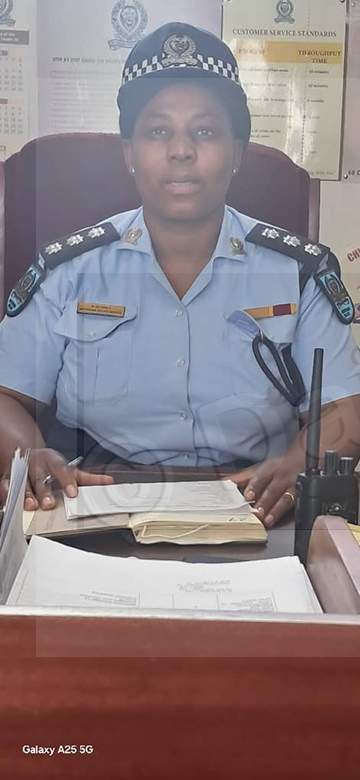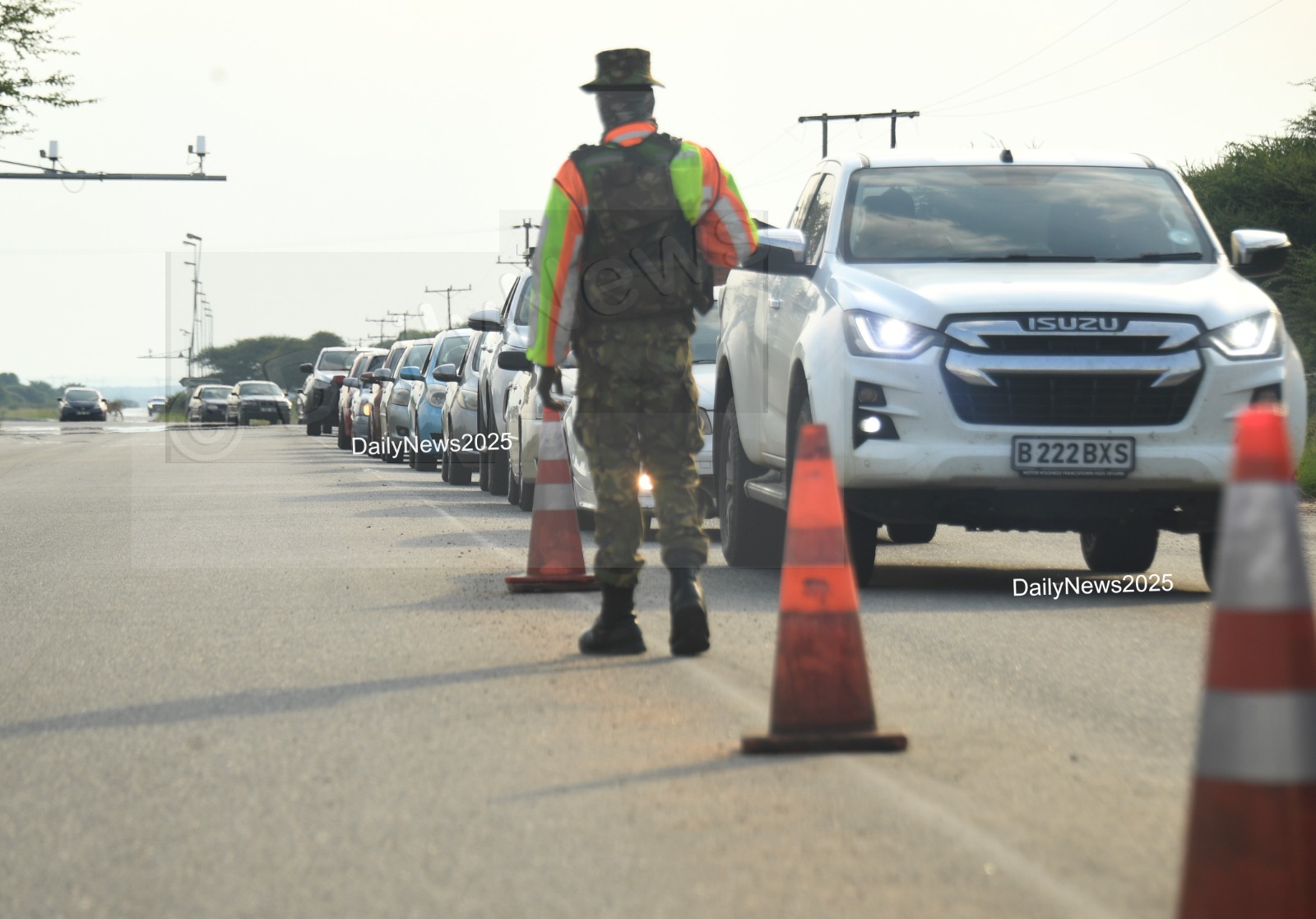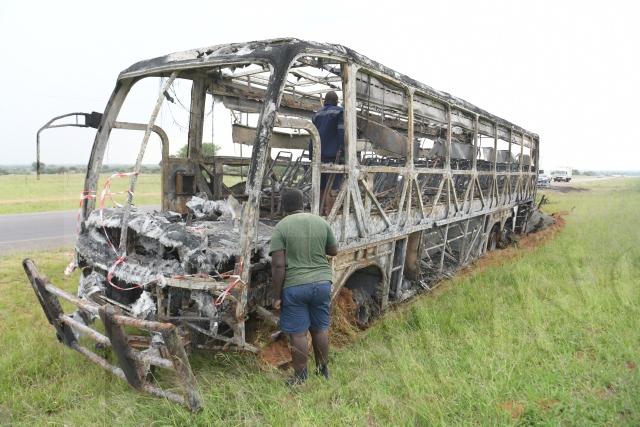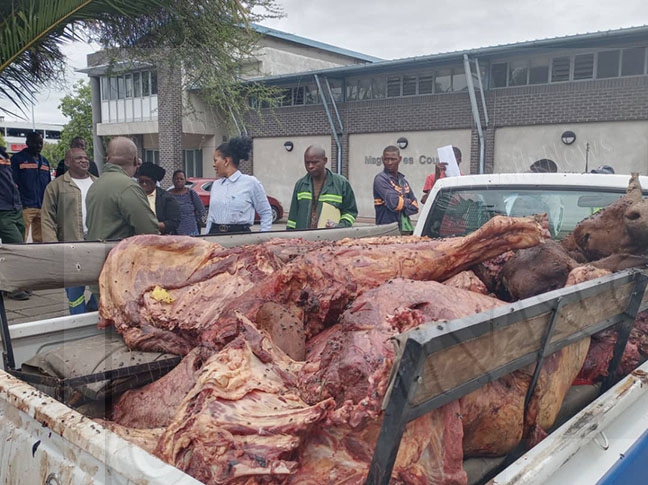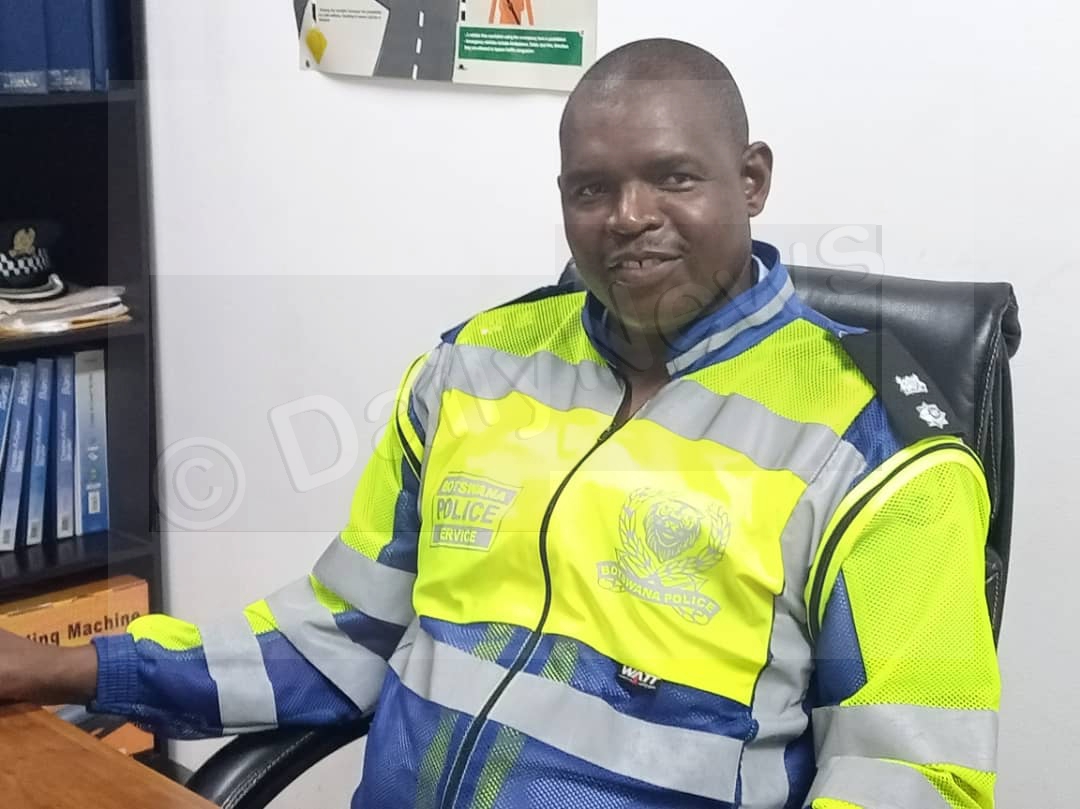Judicial Inquiry Day 2
17 Nov 2021
The second day of the judicial inquiry saw a bigger attendance of the proceedings by members of the public. The inquest started on Monday.
Private (Pvt) Orumilwe Motlhale took the stand to corroborate the testimonies of his seniors Lt. Moreri Mphela, Sergeant Ndingzano Mfazo and
Staff Sergeant Balisi Bolotsang.
Pvt. Motlhale explained that on the day, he was piloting one of the two BDF speedboats on assignment to look for the suspected poachers, who an anonymous caller had said were in two canoes near Chilwero Lodge, and that they were armed.
“On arrival at the spot pointed out to us we spotted four men, two in each canoe. Our platoon commander, Lt. Mphela shouted, ‘Stop! who goes there?! halt!’ but the four men did not regard the command.
Instead a gun shot rang from their direction and towards our boats”.
He explained that in terms of military Standard Operational Procedures (SOPs), a gun shot under such circumstances was a command to shoot, hence the soldiers started shooting in the direction the shot came from without waiting for instruction from their commanding officer.
The shooting went on for a few seconds, he explained.
In the interval following the shooting, another BDF boat arrived, after Lt. Mphela had requested from his superiors that traumatised officers be relieved.
“I joined the other four soldiers and returned to Sedudu base.
However, we returned to the scene the following morning around 4am.”
Another witness, Private Barulaganye Rannosang when giving evidence, said he was one of the two soldiers who had a Night Viewing Device (NVD); before spotting the four alleged poachers, he saw wild animals on the Island.
Pvt. Rannosang corroborated the chronology of events as detailed by Pvt. Motlhale.
“Since the river was sweeping away the canoe, we used our speed boat to push it next to the other canoe that was on the edge of the island.
“I was one of the three soldiers who remained at the scene when the others went back to the base camp,” he said.
He explained that on the evening of November 6, he and others were taken to Kasane police to make statements.
After invitation for questions, Mr Sinvula Mudabeti, who interrogated all the other previous witnesses, asked Pvt. Rannosang if in his view he considered himself a suspect in the matter.
Pvt Rannosang could not answer the question immediately, and Regional Magistrate Ms Taboka Mopipi explained to him that according to the Inquest Act, a witness was free not to answer any question that could incriminate him or her.
Coming as somewhat of a relief for the witness, he told the investigation that he was not in a position to answer the question.
Next on the stand was Pvt. Emmanuel Majuta, who in addition to corroborating the evidence of the other witnesses, told the court that on the day of the shooting, he was an oarsman and was seated at the front of the boat.
Asked by the Assistant Director of Prosecutions, Ms Thato Dibeela, what the role of the bowman entailed, he explained: “As a bowman I was responsible for clearing the way and for securing the boat when it stopped”.
He explained that the guns used by the BDF were on rapid mode, whereupon Magistrate Dibeela asked him to explain what he meant by ‘rapid mode’.
“That means the guns were not on automatic.
The dispatch of bullets was controlled by pulling the trigger,” he explained.
As he had done with previous witnesses, Mr Mudabeti indicated his intention to question the witness, but when the opportunity was granted, he made a statement instead, causing to the regional magistrate to remind him that only questions were allowed.
“Yes that’s the price to pay when you are in a foreign country,” he said determinedly, as he proceeded to pose a question.
He would, later when returning to his seat, mumble that as Namibians, they felt the presiding officer was harsh on them.
However, magistrate Mopipi explained that she was only trying to direct the inquiry so there was no confusion about questions asked.
“I am trying to be neutral as much as possible because this matter is a very sensitive one that involves international relations,” she said.
Perhaps to get validation for Mr Mudabeti’s accusation, she turned to the media to say what their views were regarding her purported non-partiality.
The Voice’s Mr Kabelo Dipholo concurred with the Regional Magistrate that Mr Mudabeti›s interjections were ambiguous.
Sergeant Puisano Kgokong was the last witness for the morning session.
He had been assigned on a trip to Sedudu Base Camp on September 6, of the same year, and Lieutenant Mphela was his commanding officer, he said.
He explained that during his stay at Sedudu, he was responsible for anti-poaching, border security, administration roles, and was at the same time doing his technical roles of purifying water at the camp.
Sgt. Kgokong said on the day of the incident, he was not only part of the mission, but also issued the ammunition as part of his administrative duties,
“I issued 815 rounds to the section on the mission and on return, 32 were used,” he said.
He explained he issued magazines and rounds according the type of gun the soldier had. Five of the soldiers had five magazines each, while two had four.
Additionally, he issued three magazines each with 25 rounds, two with 20 and the other two with 30 rounds.
He said during the mission, he was a rear guard.
“When the gun shot rang from the men’s direction, I could not fire because if I did, I would have shot my team members.
Instead I lay down on the boat, still guarding its rear,” he said.
He further indicated that when the shooting ceased, he shone his torch in the direction the first gunshot had come from.
During question time, one Mr Matengu Simushi, asked Sgt. Kgokong how he was able to use the torch while he claimed he could not use the gun; and when exactly he stood up from the lying position.
“A torch and a gun are two different things, a torch’s light cannot injure anyone and just like I told the court earlier, I stood up after the shooting ceased,” said Sgt. Kgokong, who seemed, perplexed, even irritated by the question.
Brigadier Barwabatsile argues his men did not break the law
Brigadier Simon Motswana Barwabatsile took oath to become the 11th witness on the second day of the inquest.
His would be a grueling two-hour narrate-and-answer session.
A total of 22 witnesses are expected to give evidence during the inquest, which is scheduled to end on the 26th of this month.
So the inquiry would understand him the Brigadier gave a little lesson on the operational structure of the BDF.
He explained he was the BDF Chief of Staff for Internal and External operations.
Moreover, by virtue of his position, Brigadier Barwabatsile, 52, who joined the army as an officer cadet in 1989, doubled as the national coordinator for the anti-poaching unit, to ensure inter-agency collaboration and cooperation of the Department of Wildlife and National Parks, BDF, Botswana Police Service and Directorate of Intelligence and Security Services (DIS).
“My current appointment is Joint Force Chief of Staff for the joint force headquarters. This headquarters is referred to as the operational headquarters for the Botswana Defence Force and it exists solely to coordinate BDF operations; be they domestic or international.
So it plans for, coordinates and executes operations for the BDF mandate, which talks of sovereignty, territorial integrity, protection of the public and property and the national interest,” he offered.
And he did it in typical military legato, prompting Magistrate Mopipi to ask that he should please slow down for the recorders.
He explained the BDF chain of command had three tiers, but dealt mainly with the strategic tier, which he said guided and gave the defence force operational direction.
It was at the strategic level where information was interpreted and orders and documents classified as secrets to be carried out at tactical level were generated.
“Tactical commanders in this case, we have quite a number of them and we have one in Kasane, who also is a recipient of such orders,” he further said.
He revealed that the northern corridor of the country, compared to the Southern and Eastern corridors, was characterised by poachers who wielded military grade weapons; including AK 47. The poachers here were for big game, he said.
“This is where we deploy most of our resources.
Here poachers use silencers- some conventional and others non-conventional - and they have the resolve to fight,” he said.
He was referring to poachers in the Okavango Delta and Chobe National Park. He explained the BDF had lost a number of highly specialised soldiers to attacks by poachers.
His answer to DPP Deputy Director, Kabo Leinaeng’s question as to whether the right Standard Operational Procedures (SOPs) were followed was in the affirmative.
“Based on the intelligence that was gathered on the night of the shooting incident last November, I have no doubt that the BDF patrol team did not act blindly.
Our operations are intelligence led to ensure we do not act blindly,” he said.
Therefore by firing back at the person or people shooting at them, the BDF anti-poaching unit was well within the expected rules of engagements and SOPs. ENDS
Source : BOPA
Author : Keamogetse Letsholo
Location : KASANE
Event : court
Date : 17 Nov 2021


